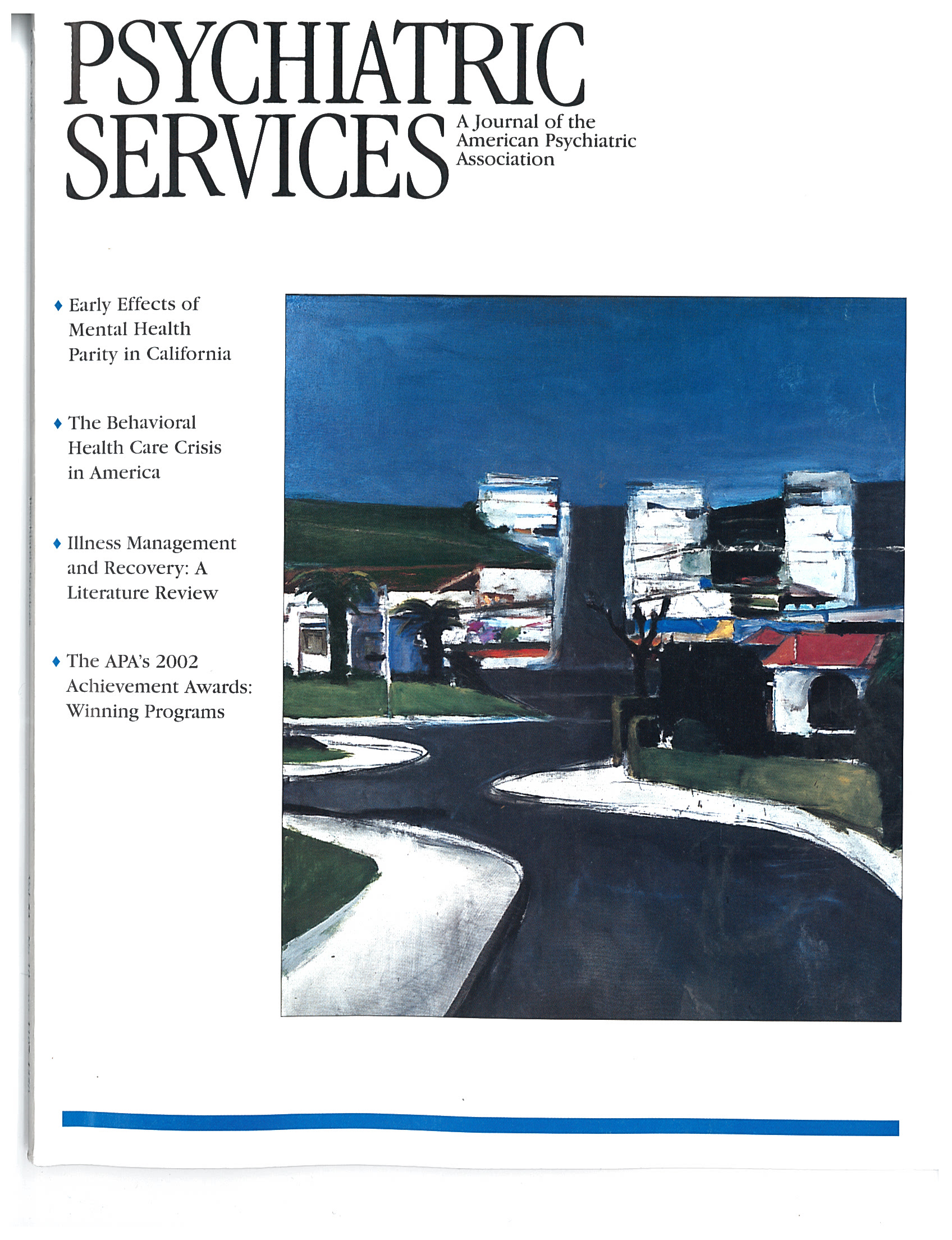APA President's Statement
This issue of Psychiatric Services features a statement by APA President Paul S. Appelbaum, M.D., and related commentaries by three leaders from different areas of the mental health field. The current health care crisis in America—"Starving in the Midst of Plenty"—was chosen by Dr. Appelbaum as a topic of critical importance for discussion at this year's Institute on Psychiatric Services. Dr. Appelbaum highlights the lack of funding for mental health services in both the public and the private sector and warns that the problem will become even worse in the near future. He urges mental health care professionals to acknowledge the seriousness of the current situation and to take responsibility for reversing it, or face the inevitable collapse of the mental health care system as we know it. Gary Tollefson, M.D., Jonathan Book, M.D., and Michael Hogan, M.D., continue the discussion by providing their own insights into this salient topic (see page 1247).
The Police and Mental Health Care
The police are often the first point of contact for persons with severe mental illness experiencing a crisis in the community, not only because of their mandate to ensure public safety but also because of their obligation to protect persons with disabilities. The police play a large part in deciding whether mentally ill individuals who come to their attention will enter the mental health care system or the criminal justice system. In this issue of the journal, H. Richard Lamb, M.D., and his colleagues discuss the role of the police from both a law enforcement and a mental health perspective. They emphasize the need for collaboration between law enforcement and the mental health care system and highlight the very different—but complementary—areas of expertise that each profession contributes to the management of persons with mental illness in the community. The authors highlight the importance of appropriate training for police officers to ensure that persons with mental illness receive appropriate care and to prevent criminalization of the mentally ill (see page 1266).
Impact of Communication in Psychiatric Encounters
Advances in psychopharmacology and the advent of managed care have changed the nature of psychiatric encounters over the past 30 years. To achieve optimal treatment outcomes in this changing environment, mental health care professionals need to have a unique set of communication skills. Mario Cruz, M.D., and Harold Alan Pincus, M.D., reviewed the literature on medical and psychiatric encounters and the influence of communicative behaviors on specific encounter outputs and treatment outcomes. They found that physicians' communication skills have been associated with patient satisfaction, treatment adherence, outcomes, and whether patients file malpractice claims. The authors call for the development of a research and training agenda to identify communicative skills that psychiatrists must possess in order to obtain the best outcomes for their patients (see page 1253).
Achievement Award Winners
Five outstanding mental health programs have been named winners of the American Psychiatric Association's 2002 Achievement Awards, which are being presented this month at the Institute on Psychiatric Services in Chicago. Gold Awards are being presented to the Wraparound Process of the Oaklawn Psychiatric Center in Elkhart, Indiana (see page 1308) and to the Arkansas Center for Addictions Research, Education, and Services (Arkansas CARES) (see page 1311). Three programs will each receive Significant Achievement Awards: the Nathaniel Project of New York City, the Theiss Child Development Center of Pittsburgh, and the Western Psychiatric Institute and Clinic (WPIC) Homeless Continuum of Pittsburgh (see page 1314).
Briefly Noted…
• In the Child & Adolescent Psychiatry column, Michael L. Slavkin, Ph.D., offers some advice on recognizing and treating juvenile firesetters (see page 1237).
• Benjamin C. Grasso, M.D., and his colleagues observed a decline in the number of errors in discharge medication lists at a psychiatric hospital after the practice of manually transcribing the lists was replaced by the use of personal digital assistants (see page 1325).
• In Frontline Reports, Stuart B. Kleinman, M.D., describes a program he presented to business managers and human resource personnel to enhance employee and organizational welfare after the terrorist attacks of September 11, 2001 (see page 1340).
• In the Personal Accounts column, Deborah Michelle Sanders, J.D., describes both positive and negative aspects of the care she has received as a psychiatric patient over the past 28 years (see page 1241).

